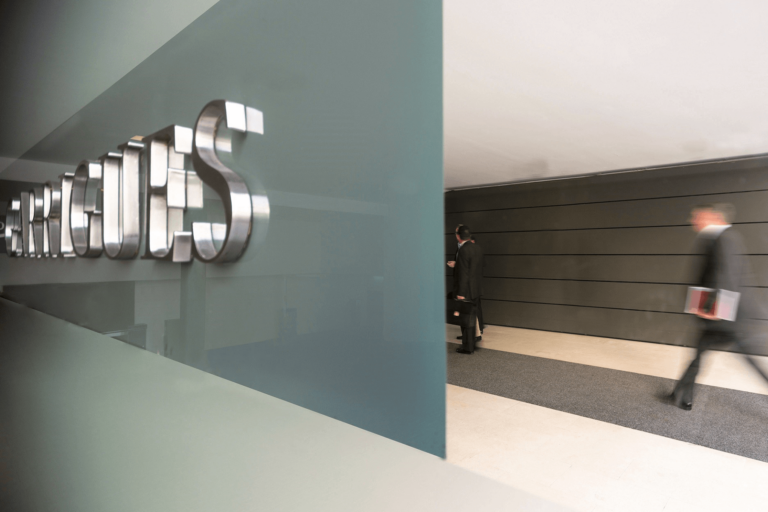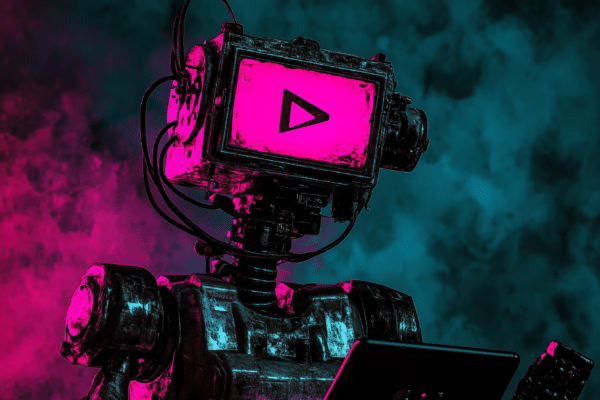Faced with the onslaught of the new wave of artificial intelligence, large law firms have begun to explore their options. In Spain, Garrigues is one of those that has worked on developing its own model, with the aim of improving the performance of its activities. The company has invested heavily in digital transformation, investing a total of €64 million over the last five years. And it is likely that part of the capital allocated to this area in 2023 will be earmarked for the development of Garrigues GA_IA or GAIA.
This is the name given by the Spanish law firm to its artificial intelligence model, which has been developed in-house, although it also integrates other commercial systems. Garrigues, which posted a turnover of €454.27 million last year and thus became the first law firm in the EU to exceed the record figure of €450 million, is setting the pace in the adoption of this new technology.
When it set out to create its own AI tool, the firm was clear about its requirements: "Our challenge was to integrate generative artificial intelligence into the business in a natural way, with a model that would meet the specific needs of Garrigues' professionals, operate on top of our own document management system and become the personal assistant of the entire team," Garrigues told Neosmart.
When deploying artificial intelligence tools, one of the main concerns of law firms is the confidentiality of information. As a result, the preferred option for large firms is to develop their own model. "The great advantage of Garrigues GA_IA is that it operates on our own document management system with more than 200 million documents and manages them with the utmost security, trust and transparency," the law firm points out.
When ChatGPT came to the fore, Garrigues quickly realized that technology would be of great importance to its business. Not surprisingly, the firm had already been working with traditional (non-generative) artificial intelligence for years: "Our first in-house development, in collaboration with the IIC (Instituto de Ingeniería del Conocimiento), was Proces@, an RPA (robotic process automation technology) that started by transforming into indexable text, audio files and any multimedia or other type of document, in Spanish. Today it uploads files en masse, processes files in different languages, orders files and downloads transcripts," the firm says.
Legal activity
Given that the impact of AI on the legal market will grow at a rate of 30.7% per year to reach a turnover of $675.1 million, according to MarketResearch data, it is foreseeable that the technology will be rapidly deployed in the legal sector. And there will be several processes that will be streamlined by AI.
The aim of these tools is to assist lawyers in certain processes. According to Garrigues: "It helps us in tasks ranging from document generation, legal research and predictive analysis, to knowledge management tailored to our needs". They also state that the model incorporates applications for "carrying out exhaustive searches in various internal and external databases, preparing specialized reports and providing assistance in specific legal tasks".
This is a sample of the tasks in which the system can provide support. But why not choose one of the AI tools already on the market, such as ChatGPT, Google Gemini or Claude, to carry out these processes? The firm points out that the big difference with existing commercial models is the high level of customization provided by Garrigues GA_IA.
"Our AI tool allows us to work with Garrigues' document management system, enables us to address our own use cases that no other tool on the market can solve, and to do so with greater security than public models," the firm refers, in this case, to the confidentiality of the documents entered.
Garrigues GA_IA
The company highlights the ability of its model to evolve, as it is designed to be enriched over time. New knowledge can be introduced into it and it can also be prepared to address issues that Garrigues' lawyers need. "As it is a living, trainable platform with constant updates, it will improve with regular use and subsequent updates, which arise from the needs and pain points of the firm's professionals," the firm suggests.
The system's architecture integrates different AI models. Some of them are self-developed and others, of a commercial nature, are used to complement the former. The creation of the tool has involved a large multidisciplinary team.
"Not only have our team of technologists participated in its development, but also close to 200 lawyers from different areas, offices and countries who contribute their knowledge of their own needs, as well as those of their clients," they explain at Garrigues. "In addition to our own models, we have relied on third-party platforms such as ChatGPT, Harvey, Gemini and, soon, Mistral. There will be more in the future as long as we consider that they enrich our architecture."
The deployment of generative AI in law firms will bring change. Many within the industry are aware of it. According to data collected by Thomson Reuters, 70% of legal professionals believe that artificial intelligence will have a high transformational impact on the legal profession within the next five years. From Neosmart we have also asked Garrigues about its vision in these times of change.
"A paradigm shift is taking place as a result of the irruption of generative artificial intelligence. Law firms have not traditionally been characterized by our high technological profile. But generative AI is a language model and law is language, which is taking the legal sector to the technological forefront," the Spanish law firm explains.
Although the industry takes it for granted that a major transformation is coming, it is not easy to assess how far it will go. Some estimates point to a considerable rate of automation of a lawyer's current tasks. Calculations by Glodman Sachs indicate that up to 44% of work in the legal field could be carried out with artificial intelligence. Garrigues acknowledges the complexity of making predictions at such an early stage of the technology, although it does foresee a trend: "It is difficult to establish what this percentage will be, but it seems clear that lawyers who know how to respond appropriately to this technology will replace those who do not use it".
No category will be exempt from the changes that AI will bring. From junior staff to partners to lawyers to senior associates, all will have to adapt to work with the new technology. And their success will depend to a large extent on their digital capabilities. At Garrigues, they are clear: "We are making a major effort in the digital training of our professionals, aware of the qualitative leap in effectiveness and efficiency that generative AI will bring."
However, the Spanish law firm has already identified an interesting factor when it comes to using technology in the future. "We have found that those who get the most out of this technology are the most experienced lawyers, because they are the ones who make the best prompts and question the results appropriately," says Garrigues.






